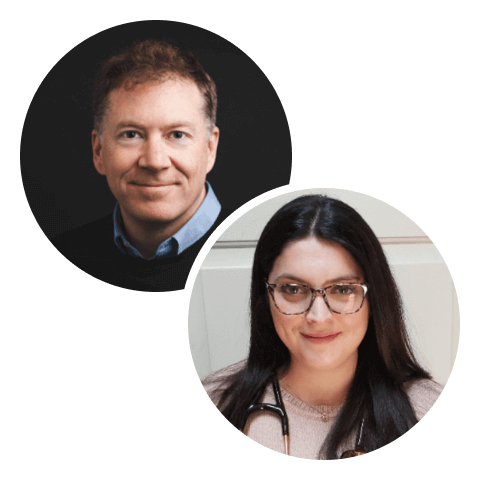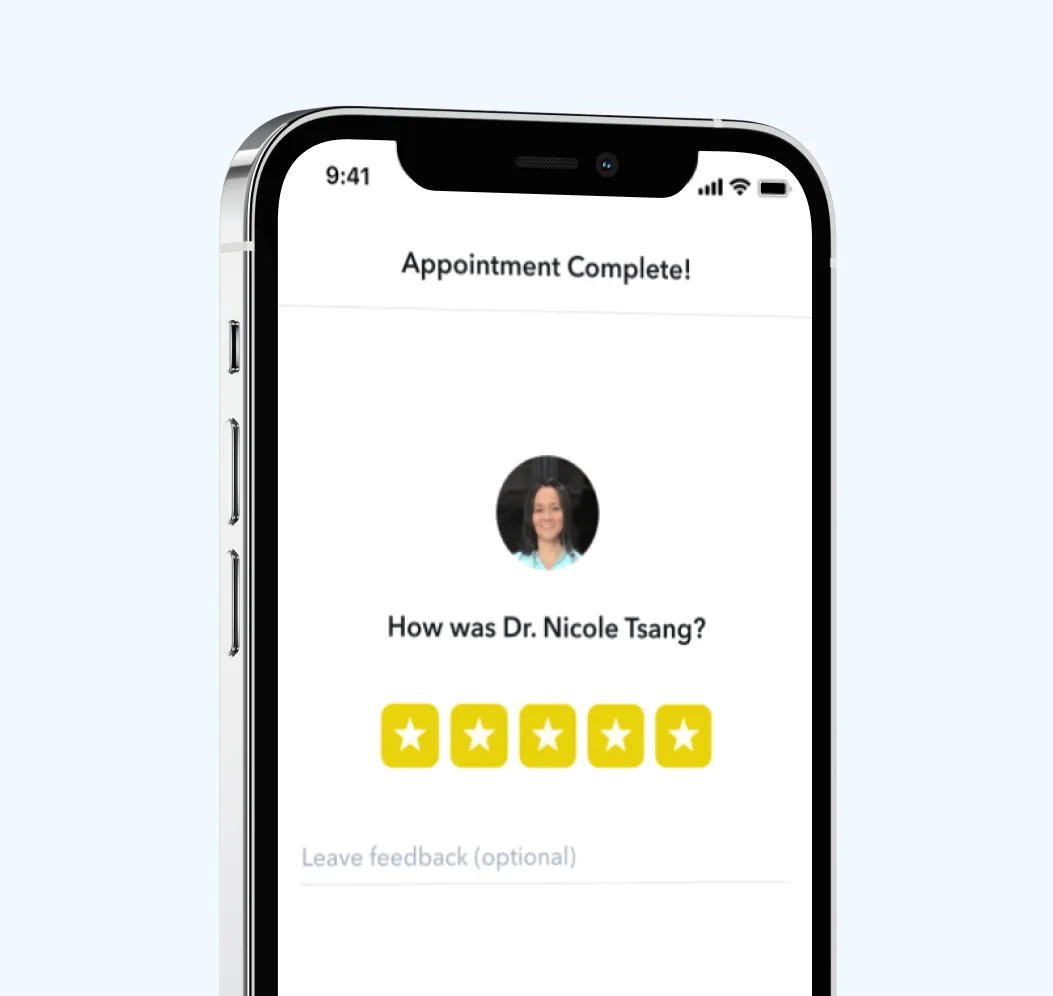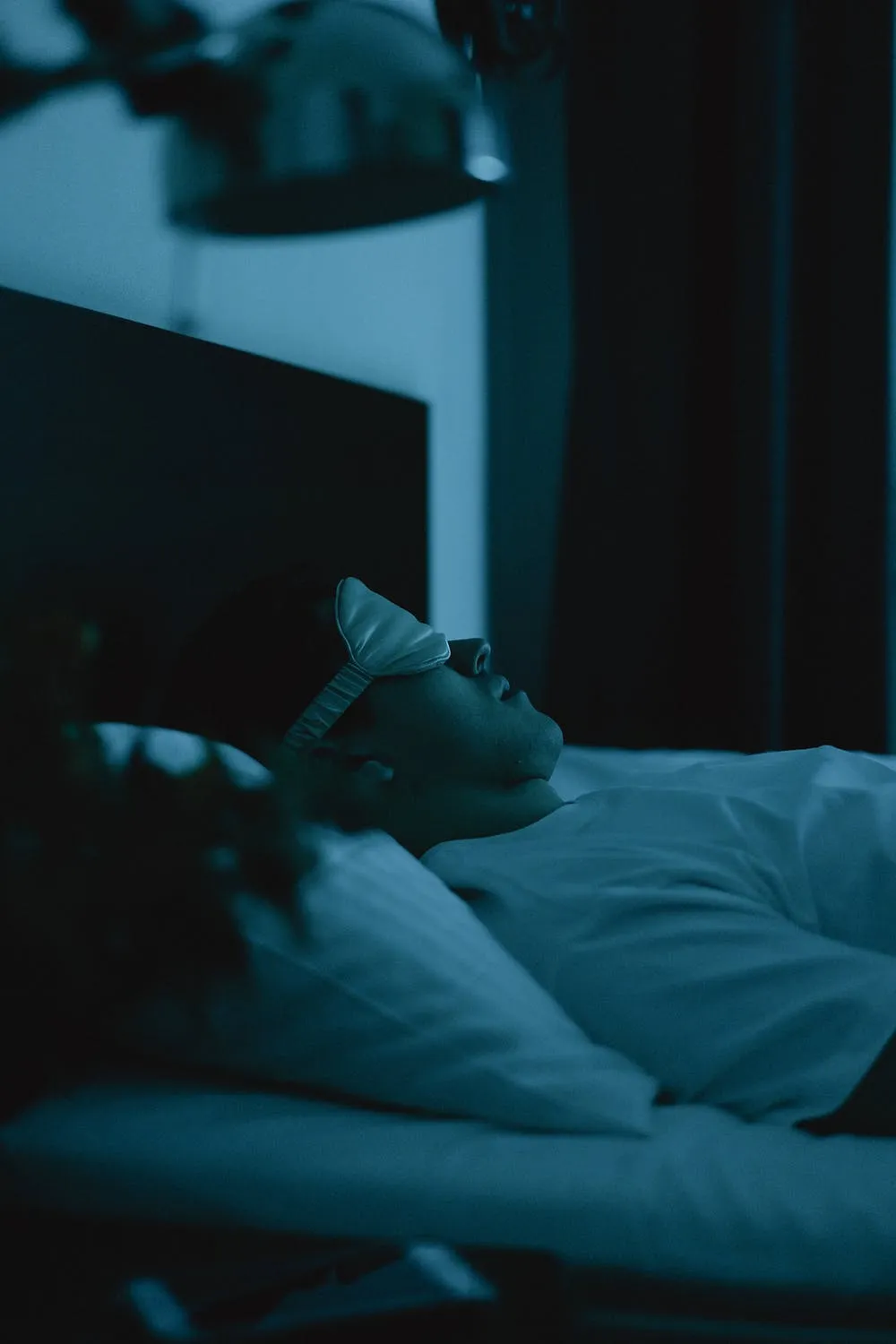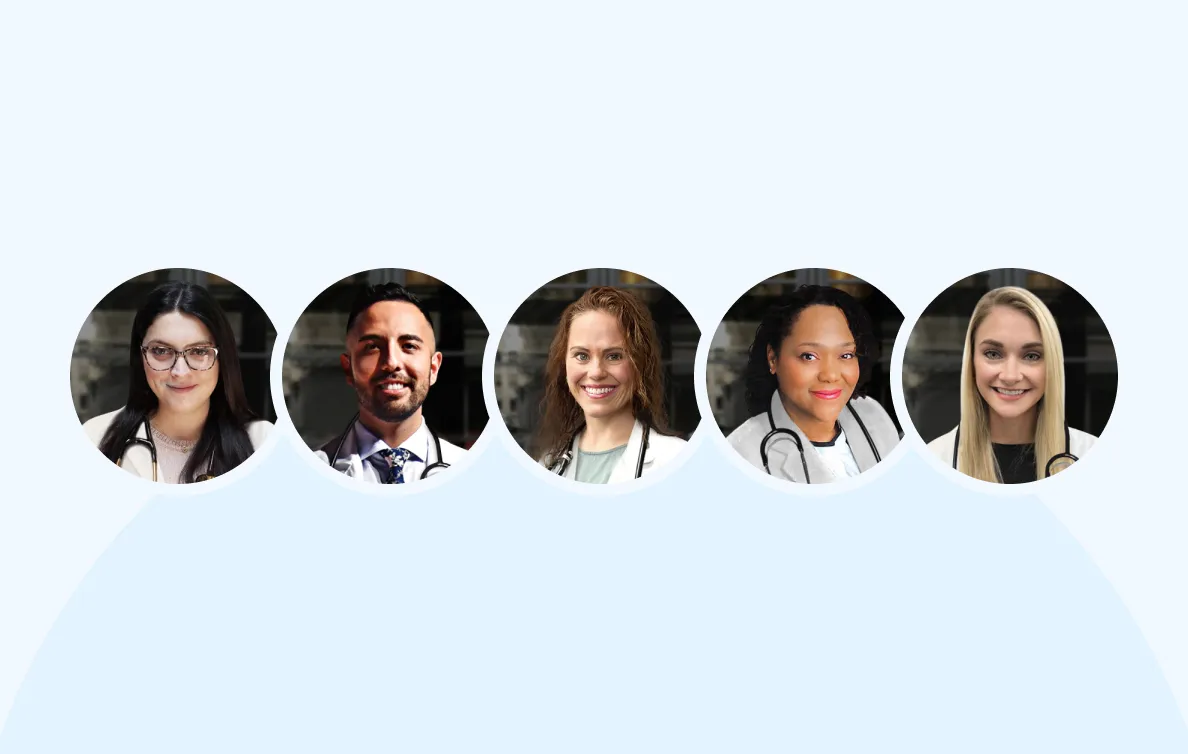All posts
How To Treat ADHD in Adults

Circle Medical Staff
Apr 25, 2023
10 mins

ADHD can be difficult to spot in adults. Although symptoms often start in childhood, they may go undiagnosed. These symptoms can also be harder to notice in adulthood.
Impulsiveness, restlessness and difficulty paying attention can affect your daily life if this condition goes untreated. With the right treatment plan, adults can relieve symptoms of this condition. While there is no cure for ADHD, taking the right steps can help make it more manageable in everyday life. In this blog, we’ll talk about ways that ADHD is treated in adults.
What Is Attention-deficit/Hyperactivity Disorder?
Attention Deficit Hyperactivity Disorder (ADHD) is a neurological condition that affects a person’s ability to concentrate and regulate their behavior. It can cause restlessness, hyperactivity, impulsive behavior and make it difficult to focus.
The exact cause of ADHD is unknown. However, most theories believe that it likely stems from a combination of factors. These factors may include:
- Genetics - Studies have observed that this disorder can run in families. If parents or close relatives have the condition, it may be heritable and passed on to future generations.
- Environmental factors - There are certain environmental factors that may increase someone’s risk of developing this mental health disorder. These factors include being exposed to toxins such as lead as a child.
- Developmental factors - Changes in your development may lead to ADHD. Factors such as the mother smoking or drinking during pregnancy, premature birth, brain trauma as a child and other developmental risk factors may be linked to this disorder.
- Lifestyle habits - While lifestyle habits aren’t necessarily a cause, they can increase the severity of symptoms. Lack of sleep, poor diet, stress and other negative lifestyle habits may worsen symptoms.
Again, there is no single factor that has been definitively identified as a cause of ADHD. If you suspect you may have this condition, you will need to speak with a doctor to get a diagnosis and determine a plan for treatment.
5 Tips To Ease Your Symptoms
As mentioned, there is no cure for this mental health disorder. However, taking the appropriate steps of a medically-recommended treatment plan can ease symptoms and make ADHD much more manageable. One or more treatments like lifestyle changes, support groups, meditation, therapy and medication are potential paths to lessening the symptoms. Let’s take a close look at each of these types of treatment.
Lifestyle changes
Attention Deficit Hyperactivity Disorder can be difficult to manage on its own, but it can worsen if you have certain lifestyle habits. Your diet, activity levels and sleep habits can all have an effect on your symptoms. Poor nutrition, poor sleep and lack of exercise can worsen your symptoms and make treatment more difficult. Conversely, a balanced diet, a healthy sleep schedule and regular exercise can help improve your attention and focus.
Exercise
Exercising regularly is a useful tool for managing ADHD. Exercise can boost endorphin levels, helping to improve your mood and focus. If possible, it’s best to get at least 30 minutes of physical activity every day. If recommended, mixing aerobic exercise with strength training can provide a balanced exercise routine that is beneficial for individuals with this disorder.
Diet
Those with ADHD should also try to have a balanced diet that will give them sustained energy throughout the day. This means avoiding sugary snacks and processed foods while focusing on eating more whole fruits and vegetables, lean proteins, healthy fats and complex carbohydrates. In addition to maintaining a balanced diet, those with this condition should also make sure they’re staying hydrated and drinking enough water throughout the day.
Sleep
Getting enough sleep every night is incredibly important when it comes to managing ADHD. Everyone’s sleep needs will vary slightly depending on age and other factors, but aiming for 7 to 9 hours of uninterrupted sleep per night is generally a good place to start.
Those with ADHD should also try to improve their sleep hygiene, which involves creating healthy habits to improve sleep quality and creating a comfortable environment for sleeping. Here are some ways you can improve your sleep hygiene:
- Go to bed at the same time and wake up at the same time
- Create a calming bedtime routine
- Cut down on caffeine or avoid it altogether
- Avoid alcohol and nicotine
- Create a dark, comfortable sleep environment
- Avoid electronic use close to bedtime
- Don’t eat large meals close to bedtime
- Avoid exercising too close to bedtime
- If you’re tossing and turning in bed, try getting up and doing a calming activity for a short period of time and then return to bed to try and fall asleep again
Sticking to these habits can help improve your sleep quality and potentially ease your symptoms. The best lifestyle changes would be a combination of the above three factors. Exercising, getting good sleep and having a healthy diet can make a big difference for some individuals with ADHD.
Support groups
Support groups can be a great resource for adults struggling with ADHD. Support groups allow you to connect with other individuals who experience similar struggles. You can share your experiences, build a support network and create relationships with others who understand what you go through on a day-to-day basis. This can help you feel less isolated, as you can see that others have similar problems managing their symptoms as well. Also, it can be a great way to exchange strategies for managing symptoms, which might lead to you finding a strategy that works for you.
There are plenty of ways to find support groups for Attention Deficit Hyperactivity Disorder. Many communities will have in-person group meetings at local community centers or churches if you prefer a faith-based approach. Even if you don’t have a support group in your local area, you can always find numerous support groups online. Sometimes online is a better option because you can be more specific with the type of support group you want. It may also be easier for you to attend meetings from home. Along with support groups, there are plenty of other online resources to give you strategies and information about living and coping with ADHD symptoms.
Here are a few examples of excellent support groups for those with ADHD:
-
Rena-fi.org
-
RenaFi provides an academic, research-based practical, financial education platform for neurodiverse individuals. Our members learn better money strategies based on behavioral finance science.
-
ADD.org
-
The Attention Deficit Disorder Association (ADDA) is the world’s leading adult ADHD organization. We are an international non-profit – 501C – organization founded over thirty years ago to help adults with Attention Deficit/Hyperactivity Disorder (ADHD) lead better lives. Since its inception, ADDA has become the source for information and resources exclusively for and about adult ADHD. ADDA brings together scientific perspectives and the human experience to generate hope, awareness, empowerment and connections worldwide in the field of ADHD
-
CHADD.org
-
Children and Adults with Attention-Deficit/Hyperactivity Disorder (CHADD) was founded in 1987 in response to the frustration and sense of isolation experienced by parents and their children with ADHD. At that time, one could turn to very few places for support or information. Many people seriously misunderstood ADHD. Many clinicians and educators knew little about the disability, and individuals with ADHD were often mistakenly labeled “a behavior problem,” “unmotivated,” or “not intelligent enough.”
-
ADDitude is required reading for anyone touched by ADHD — plain & simple. The nation’s leading source of important news, expert advice, and judgment-free understanding for families and adults living with attention deficit disorder, ADDitude is your voice and your advocate. Since 1998, millions of parents and adults have trusted ADDitude’s expert guidance and support for living better with ADHD and its related mental health conditions. Our mission is to be your trusted advisor, an unwavering source of understanding and guidance along the path to wellness.
Regardless of the type of support group you choose, the goal is to build a strong community of others who understand you. This can be a healthy way for individuals with this mental health condition to talk about their experiences and receive guidance. It can be a comforting and uplifting experience to have a community of like-minded adults who show you that you’re not alone.
Meditation
Meditation can be a great tool for lessening symptoms of ADHD in adults. While meditation is typically best combined with other treatment methods, it can be a supportive tool in the treatment toolkit. While those with this mental health disorder often struggle with concentrating and restlessness, meditation involves focusing on the present moment. Meditation requires an individual to calm the mind and let their thoughts flow freely, and many forms of meditation also involve breathing techniques. With guided or freeform meditation, individuals with ADHD may be able to reduce stress and anxiety while also improving focus and concentration.
There are even apps available that offer guided meditations to get you started. These guided meditations can help you learn how to meditate and ensure you stay focused throughout a meditation session. The benefits of meditation in relation to Attention Deficit Hyperactivity Disorder are still being studied, but it is something that may be worthwhile to include in a treatment plan.
Therapy
Counseling and therapy can also be effective treatment options for adults with ADHD. There are a variety of different therapy methodologies that may or may not work for you. It’s best to speak with your primary care provider to determine which form of therapy may be most effective for you. Also, just because one form of therapy doesn’t work for you doesn’t mean that another won’t work. You may need to try several forms of therapy or try a few different therapies before finding one that really sticks and aligns with your needs. However, some people find the right therapy for them right away.
Here are some of the most common forms of therapy for adults with ADHD:
CBT: Cognitive Behavioral Therapy (CBT) - Cognitive behavioral therapy is a form of psychotherapy that focuses on changing and reframing negative thought patterns. CBT can help those with ADHD recognize their triggers and see how their symptoms affect their everyday life. Through CBT, individuals with this disorder can develop ways to adjust their thought patterns and manage their symptoms.
Mindfulness-Based Cognitive Therapy (MBCT) - MBCT follows the same tenets of CBT, but combines it with mindfulness meditation. This can be a great option for those with ADHD who are interested in a combination of therapy and meditation for their treatment plans. An MBCT therapist can help adults with this condition learn to meditate to help manage their symptoms.
Occupational Therapy - Occupational therapy focuses on building skills or modifying an individual’s environment to better suit their needs. For adults with ADHD, occupational therapy may involve working on organizational skills, social skills, stress management and more.
There are various other forms of therapy for adults with ADHD. Therapy is a promising treatment option, so it’s worth talking with your doctor about options. Your doctor may also be able to refer you to a therapist they think could help you with your condition most.
Medications
While medication isn’t typically the first path to take for ADHD treatment, it may sometimes be medically appropriate. Attention Deficit Hyperactivity Disorder medications tend to be stimulants such as amphetamine and methylphenidate, often known more commonly as Adderall and Ritalin, respectively. Other medications for this disorder may include non-stimulants such as atomoxetine and antidepressants such as bupropion. These medications work by changing the levels of certain brain chemicals, which may improve your focus and attention.
However, these medications can also have side effects. It’s important to talk with your doctor about any potential side effects. If you’re prescribed ADHD medication, you should also make sure to update your doctor about your progress and report any side effects immediately.
Even if your doctor does decide that medication is the right treatment option for you, they will typically combine it with one or more of the other treatment options we’ve covered. The medication will work best if you’re also making the right lifestyle changes and taking the right steps to manage your symptoms.
Your doctor can help you build a comprehensive treatment plan that is right for you, so you should always talk to them first.
Talk To Your Doctor
If you’re an adult with ADHD, or if you think you have it, you should make an appointment with your primary care provider or someone who specializes in Attention Deficit Hyperactivity Disorder. ADHD can make certain aspects of everyday life difficult, and this can also have other consequences on your mental and physical health. Talking with a doctor will ensure you get the proper diagnosis and a treatment plan that addresses your specific needs.
You will need to talk to your doctor about your symptoms and the challenges you’re facing. You will also need to discuss your medical history to give them the most comprehensive view of your condition. From there, your doctor can start working on a treatment plan with you. Keep in mind these treatment plans may take some time before you achieve your desired results. You and your doctor will do regular check-ins to ensure things are progressing in a positive direction. This also allows your doctor to make adjustments to your treatment plan as necessary.
Book an Online Appointment with Circle Medical Today!
Did you know you can get an ADHD diagnosis and treatment plan from the comfort of your own home? Circle Medical is an online primary care provider that assesses your condition and guides you through a treatment plan. We have providers who specialize in ADHD treatment. The first step is setting up an appointment. Diagnosis will typically take two to three appointments, and then your provider can create your unique treatment plan. Your online provider can do everything an in-person provider can do. This means regular check-ups, diagnosis and prescribing medication for your ADHD if clinically appropriate. We also have same-day availability, so you can start as soon as possible. Book your online appointment with Circle Medical today!
Circle Medical Providers must meet all of the following standards:
-
Exceptionally qualified in their field
-
Board-certified
-
Deeply empathetic for patients
-
Follows evidence-based care guidelines
-
Embracing of diverse patient backgrounds
-
Impeccable record of previous care
400+ Primary Care Providers.
100% Confidence.
No matter which Provider you choose, you will be seen by a clinician who cares deeply about your health and wants to help you live your happiest, healthiest life.
Circle Medical Providers are held to an exceptionally high standard of compassionate, evidence-based care.
Book Appointment

